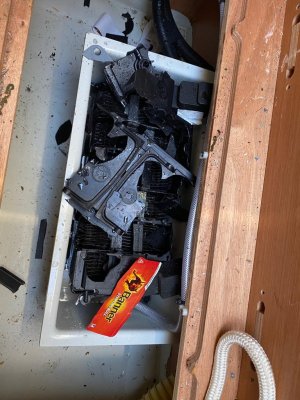PaulRainbow
Well-Known Member
Not wishing to give any egg sucking lessons, but remember, if a battery is gassing enough to set the Co alarm off, the slightest spark will cause an explosion.Had similar problems this week. Marina called to say boat was sounding CO alarm. Put new batteries in but yesterday that device and the main CO/LPG alarm I'd wired in was beeping.
The only thing powered up on shore power is the battery charger. Switched that off and will do some battery testing.
Check the batteries for temperature, if one is hot it's the culprit. If they have been sitting with no charging, carefully separate them and check the voltages. If one is around 10v, that's the culprit.

